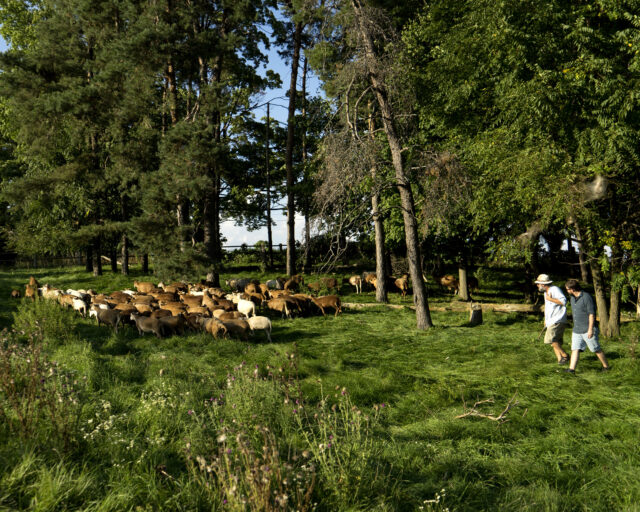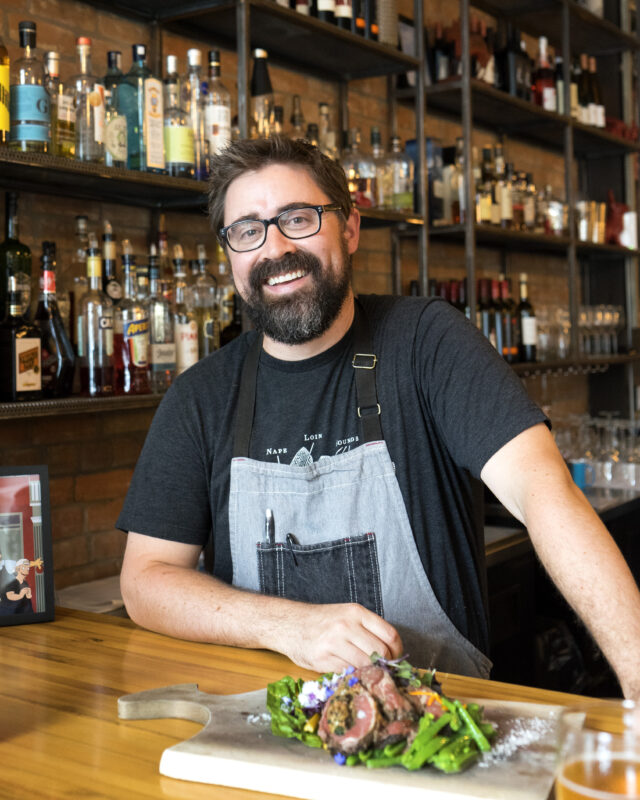Church Hill Farm: a natural approach

The lower portion of the farmhouse screen door is scrolled with “CHF;” the upper offers a tight, spyglass view through the first floor to the rolling acres of the 1850s Church Hill Farm that lie beyond.
Inside the large open kitchen, the view is sweeping: barns, farm equipment, bush and woodlot, some ducks and a few dozen sheep wending their ovine, ruminant way through the grass.
Max Lass turns from the stove and gazes out the window. He’s cooking burgers made with vache Canadienne beef, a unique French-Canadian breed with which he’s currently experimenting. The heat under control, the pops and sizzles in the frying pan are calm as the fat renders.
Lass is calm too, though he’s been without sleep lately, he says. “The dogs help keep the coyotes away, but the barking also keeps us awake at night.”
Lambing at three a.m. tends to ruin your sleep too. After 15 years at Church Hill, and after a previous life as a dairy farmer – where, he says, “there’s only one thing to do all year” – he’s enjoyed the variety, the problem solving, of the animals and this business.

But he’s also contemplating a succession plan for his kids – just not the meat business; that’s his pride, nurtured nicely in Perth County and Waterloo Region. “The business grew one restaurant at a time, starting with The Prune and Bryan Steele. He had such a great reputation that he’d just phone a chef and say you should try this Church Hill meat. It went from there,” Lass says.
Steele, a chef school instructor, is part of the farm-to-table milieu that Lass says is pivotal to the local food scene. “They train chefs to understand what farmers are doing. Here, we give the animals a natural approach to life. We don’t agree with feedlot production or raising chickens or ducks in a per-square-foot environment. Pork isn’t just pork,” he says emphatically.
“Pigs are forest creatures. They need to be outside eating roughage, vegetables, roots and tubers.”
Visit here for more about the Farm to Table book.
[Photos/Terry Manzo]

